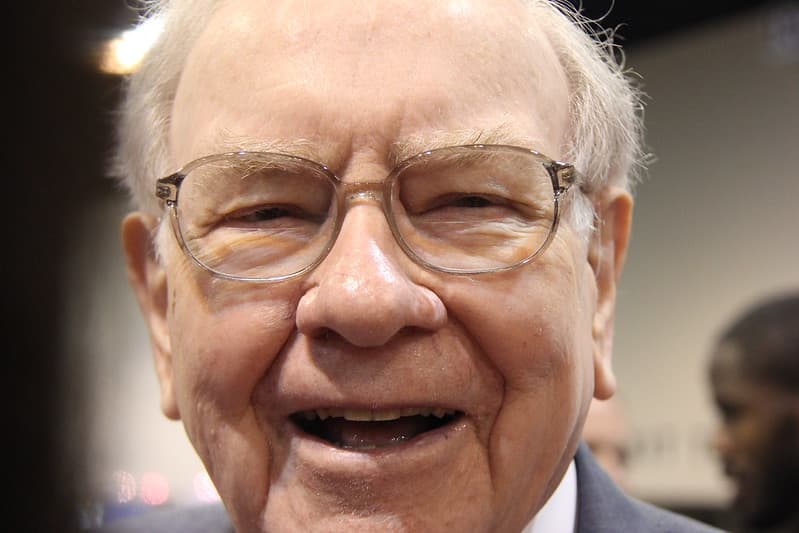Berkshire's Cash Reaches $382 Billion

News Summary
Berkshire Hathaway reported robust third-quarter financials, with operating earnings increasing 34% year-over-year to $13.5 billion, primarily driven by a significant surge in insurance underwriting income (up 216%). However, the most striking development was its cash and short-term investments soaring to a record high of nearly $382 billion, an increase of almost $40 billion from the previous quarter. This cash stockpile growth is attributed to strong operating income, the absence of share buybacks during the quarter, and likely the sale of some stocks, potentially further paring down its Apple investment. The report also highlights that this will be Warren Buffett's final quarterly report as CEO. Greg Abel is set to take over as CEO when the company's fourth-quarter earnings are revealed. Investors are advised to watch for the 13-F filing around November 14 for details on Berkshire's specific stock purchases and sales during Q3.
Background
Berkshire Hathaway is a diversified holding company led by legendary investor Warren Buffett, known for its value investing strategy and acquisition of businesses with strong competitive advantages. The company has historically maintained substantial cash reserves to seize significant acquisition opportunities as they arise, granting it unparalleled financial flexibility during market fluctuations. Warren Buffett, one of the world's most revered investors, has profoundly influenced global financial markets with his annual shareholder letters and investment philosophy. His retirement and Greg Abel's succession mark a pivotal moment in Berkshire Hathaway's history, signaling a transition in leadership and potential strategic direction.
In-Depth AI Insights
What are the deeper implications of Berkshire's unprecedented cash pile for its investment thesis and the broader market? - Berkshire's massive cash reserve ($382 billion) is not merely awaiting a "whale-sized" acquisition; it also reflects management's cautious stance on generally high market valuations. In 2025, even with the US economy showing some resilience under the Trump administration's policies, the elevated levels of major stock indices likely limit the Buffett/Abel team's ability to find investment targets with sufficient safety margins and long-term growth potential. - This caution could signal management's belief in significant short-term market correction risks or a scarcity of high-quality assets capable of generating Berkshire's desired returns. This is not a negative signal but rather a manifestation of its long-term value investing philosophy: preferring to miss an opportunity rather than taking on excessive risk. How will Warren Buffett's retirement and Greg Abel's succession impact Berkshire's future capital allocation and investor expectations? - Post-Buffett, Berkshire's investment decision-making style may become more institutionalized and diversified, rather than relying heavily on Buffett's personal intuition and wait for "extraordinary opportunities." Abel, as CEO, may focus more on improving operational efficiency within existing subsidiaries and pursuing smaller acquisitions with greater strategic synergy. - Investors will likely scrutinize future capital allocation, particularly share buyback strategies. The absence of buybacks this quarter might indicate waiting for more attractive stock price levels. In the post-Buffett era, in the absence of large acquisitions, buybacks could become a crucial method of returning capital to shareholders, though this might also imply a greater reliance on internal business expansion rather than external M&A for growth. In the macroeconomic context of the Trump administration in 2025, what are the geopolitical and macroeconomic implications of Berkshire's substantial cash flow for the US economy and for Berkshire itself? - Under the continued influence of the Trump administration's "America First" policies, support for domestic industries, potential trade protectionism, and deregulation in specific sectors could create new investment opportunities. However, Berkshire's cash not being deployed extensively suggests these opportunities may not meet its stringent investment criteria or are not large enough in scale. - The massive cash reserve also provides Berkshire with extreme defensiveness against potential economic downturns or black swan events. In a highly uncertain global geopolitical environment (e.g., escalating trade tensions with China or Europe), this liquidity serves as a crucial buffer. Simultaneously, it might attract government or public scrutiny regarding the "unproductive" hoarding of such significant capital within the US economy, even if it aligns perfectly with its investment strategy.